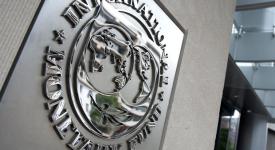EU auditors announced on Tuesday (4 November) that the Bloc misspent almost 7 billion euros last year warning that Brussels should try harder to get more out of its budget. However, despite the significant sum of money having been “lost”, the so-called error rate for spending decreased to 4.7 percent in the 2013 budget of 148.5 billion euros, against 4.8 percent in 2012, the European Court of Auditors informed. The EU Commission used these results to point out that its efforts to deal with misspending was “starting to pay off”.
However, non-governmental organizations said that the report from the European Court of Auditors demonstrates how a substantial bulk of EU spending is actually not in compliance with the rules. An independent watchdog said that the most problematic parts of EU polices were rural development and regional policy, which had error rates of 6.7 and 6.9 percent respectively. The cited “errors” include for example a firm claiming funds as a small business despite being owned by a large company or farmers claiming a subsidy for grassland which was actually partly forest.
The watchdog adds that the fundamental problem of misspent money is the fact that Brussels does not check how well the money was spent, which is a “fundamental flaw in the design of much of the EU budget”. Nevertheless, reported misspending is not a measure of fraud, inefficiency or waste. Vitor Caldeira, the head of the independent watchdog, thinks that there should be “more incentives to improve performance and to deliver value for money.”
The report of the EU’s misspending comes at the unfortunate time when Brussels is forcing member states to design and implement further austerity measures. The EU Commissioner for Budget and Human Resources, Kristalina Georgieva, agreed that the Commission should do more to stop spending errors but “without adding more costs and bureaucracy”. She added though that the errors must be seen in the “context”. She added that she was pleased that auditors found that 2013’s error rates had improved.







